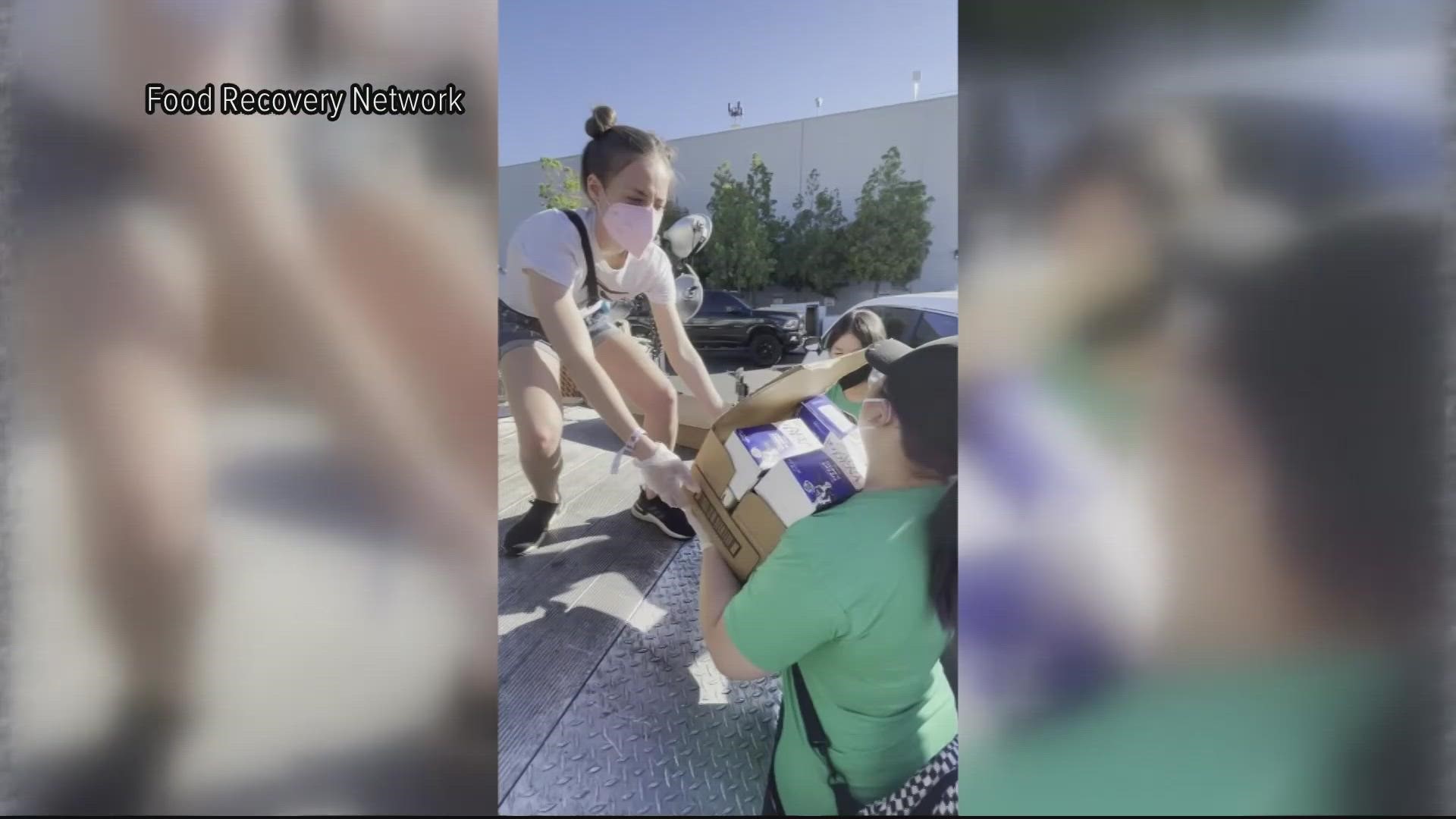WASHINGTON — The Food Recovery Network is on a mission to feed families all across the country. The D.C.-based organization is heading to Glendale, Arizona to recover food from the highly anticipated tailgate party.
"The party travels all around the U.S. wherever the Super Bowl is, this tailgate party follows along. The leadership of the Bullseye Event Group said we need to make sure that all this extra food doesn’t get thrown away," said Regina Anderson, the executive director of the Food Recovery Network.
“We’re essentially waiting for chefs to say, 'OK, we’ve closed up shop for the day, we’re not going to serve anymore food,'" said Erin Price, the organization's program manager.
Price and Anderson are heading from D.C. to Arizona Friday to prepare for Sunday. They, along with about a dozen volunteers, will recover food once the tailgate wraps. If the FRN were not collecting and donating the food, it would be thrown away.
“The onions, the chicken, seafood, butter, milk. All these raw ingredients we’ll load that up in our refrigerated trucks and then we’ll also recover some of the prepared foods," Anderson said.
Super Bowl LVII is their third Super Bowl. They've recovered thousands of pounds of food for people in need.
“Five-thousand pounds of food in 2020, 2,000 pounds of food in 2022, and this year it could be another 3,000 pounds of surplus food to people in need,” Price said.
A group of students at the University of Maryland started the organization more than a decade ago after noticing how much food was being thrown out once the cafeteria closed. Now, FRN has 100 chapters across the country. According to its site, the Food Recovery Network is the largest student-led movement fighting food waste in America.
“At 4:59 p.m. the food is perfectly fine to eat, to purchase, but at 5:01 that food is directed to be thrown away. We have 34 million people who are food insecure – that number is shameful,” Anderson said.
This year, the group is working with the Phoenix Rescue Mission to give that food to local food banks and homeless shelters in Maricopa County. According to the mission’s website, more than half a million people in that county don’t have access to the food they need.
"People who had never experienced food insecurity before were experiencing that during the pandemic. For the first time in their life people saw themselves waiting in a line to get the food they deserve. A lot of people have recovered, many people have not," said Anderson.
"In 2020, during the pandemic, in Maricopa County, food insecurity rates were 17.4%, so that’s really, really high. The national average is 12%. It’s just really special to provide such access with high quality ingredients to people who really deserve to have that access to food," Price said.
FRN works small catered events, too. They also do food recovery at the Gaylord Hotel at the National Harbor in Fort Washington, Maryland.

